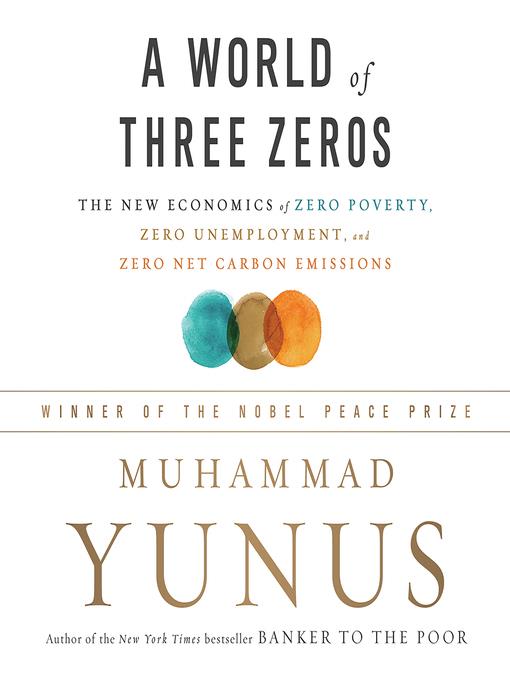
A World of Three Zeros
The New Economics of Zero Poverty, Zero Unemployment, and Zero Net Carbon Emissions
کتاب های مرتبط
- اطلاعات
- نقد و بررسی
- دیدگاه کاربران
نقد و بررسی

The author won the 2006 Nobel Peace Prize. To explain his formula for solving the problems of global wealth disparity and climate degradation, this audiobook needs the confidence and idealism that come across in Dan Woren's narration. His tonal and phrasing palette works well as Yunus, an activist Bangladeshi banker and economist, addresses global poverty through microlending and other forms of social capitalism. The author says the purely monetary goals of traditional capitalism should expand to include helping the poor become entrepreneurs so they can enjoy dignified work and have sustainable incomes. Though implementing these initiatives and the author's other plans for improving the planet are a heavy lift in today's political climate, his alarming data and predictions make this a call to action that we ignore at our peril. T.W. � AudioFile 2018, Portland, Maine

August 28, 2017
Yunus (Banker to the Poor), a Noble Prize winner and founder of the Bangladesh-based Grameen Bank, which pioneered microcredit, describes himself as “fundamentally optimistic about the future.” That optimism permeates his argument that the capitalist system’s economic framework, driven by personal interest, is broken and must be redesigned so that “both personal and collective interests are recognized, promoted, and celebrated.” Yunus’s preferred vehicle for this redesigned economy is the so-called social business, which aims not to enrich investors but improve people’s lives and make the world better. Yunus explains how social businesses can help reduce poverty, unemployment, and environmental degradation. He then examines the “megapowers” that he believes are crucial to his vision of world transformation: young people, old people, technology, good governance, and human rights. Along the way, he expresses his support for fair, free global trade. The book is packed with true-life examples, many from Yunus’s own experiences with Grameen Bank. Though the sparseness of financial data in the text is a weakness, Yunus offers sound recommendations to distribute global wealth more equitably through individual and systemic support for small-scale entrepreneurship.

























دیدگاه کاربران